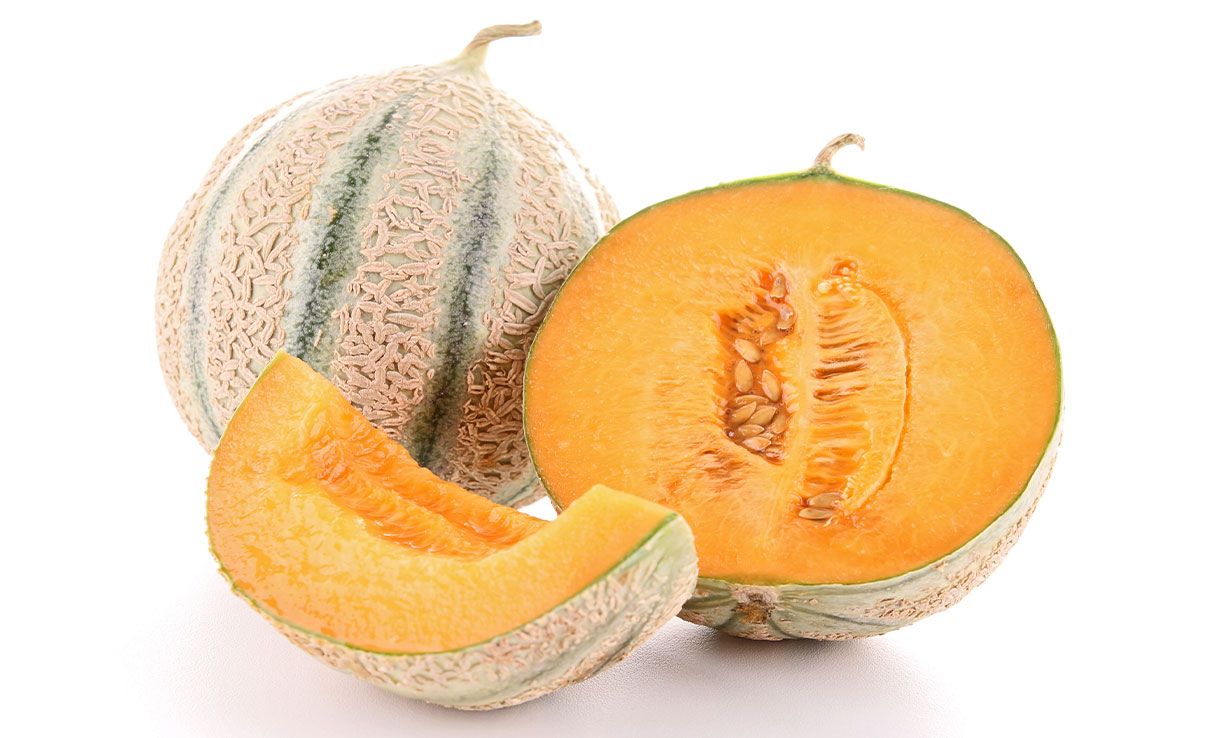By clicking a retailer link you consent to third-party cookies that track your onward journey. This enables W? to receive an affiliate commission if you make a purchase, which supports our mission to be the UK's consumer champion.
Some melons may carry salmonella risk, warns FSA

The Food Standards Agency (FSA) has issued precautionary safety advice about certain types of whole melon after a spate of UK salmonella cases.
The possible source of these cases is thought to be whole honeydew, cantaloupe and galia melons originating from Costa Rica, Honduras or Brazil, bought on or before 28 May 2021.
The melons have potentially been sold via 'a large number of UK retailers', although they have now been removed from sale.
The FSA has warned consumers who may have bought one to throw it away and sanitise any areas it came into contact with.
Read on to find out more about the products affected and what to do if you've bought one of the melons that may be contaminated.
Fridge safety tips - how to store food safely in your fridge
Which melons are affected?
This precautionary safety information covers the following types of melons bought on or before 28 May 2021 and originating from Costa Rica, Honduras or Brazil:
- Honeydew melon - smooth green to yellow skin, pale green-yellow flesh
- Cantaloupe melon - textured beige and green-striped skin, bright orange flesh
- Galia melon - textured yellow/beige skin, pale green flesh
You may be able to identify the country of origin from a sticker on the fruit, but it's not always listed.
If you aren't sure about the country of origin, you're advised to dispose of the fruit as a precaution.
The safety warning doesn't currently apply to pre-prepared and packaged melon, which is washed before being packaged and is therefore not thought to be affected.
What does the FSA say?
Several people have been hospitalised in this latest outbreak and subsequent investigations have identified these melons as a possible source.
Tina Potter, head of incidents for the Food Standards Agency, says: 'As a precaution, we are advising people not to eat these melons and to dispose of them.'
Not only that, but if you are handling the fruit - even if it's just to throw it away - it is advised that you do so with caution.
'It is important that consumers wash their hands and any surfaces that have been in contact with the melons thoroughly,' adds Tina. 'This will help avoid the risk of cross contamination and the risk of illness.'
The FSA is working with Public Health England, Food Standards Scotland and other UK health protection and food safety colleagues to continue investigations.
What are the symptoms of salmonella?
Symptoms of salmonellosis include:
- Diarrhoea
- Stomach cramps
- Nausea
- Vomiting
- Fever
Although symptoms typically get better by themselves, Professor Saheer Gharbia, head of the Gastrointestinal Pathogens Unit at Public Health England, says: 'Symptoms can be more severe and lead to hospitalisation, especially in the very young and those with weakened immune systems.'
Anybody with concerns that they have symptoms of salmonellosis should contact their GP or local out-of-hours service.
Can't I just wash the affected fruit?

Although it may be tempting to wash the fruit and eat it anyway because the salmonella is believed to be on the skin rather than inside the fruit, the FSA is recommending disposing of it rather than taking a risk.
The standard advice on cleaning fruit is to wash it thoroughly with water before you eat it, to ensure that it's clean and any harmful bacteria are removed from the outside.
However, the FSA says that in this instance it cannot be sure that this will be effective, which is why it is advising people not to eat the melons listed.
Your rights if you've bought an affected melon
This safety notice is a voluntary withdrawal rather than a recall, which means that your rights as a consumer are different: you won't be legally entitled to a refund as you would be if it was a recall.
However, some retailers may offer a refund as a goodwill gesture.
Food recall FAQs - what your rights are if you've eaten or bought food that is recalled
Product safety and Which?
At Which?, we're fully committed to improving safety standards for UK consumers.
We've spotted unsafe products listed on online marketplaces and on the high street.
For example, our expert tests have uncovered hand sanitisers that don't contain enough active ingredients to work, and teeth whitening products that contain illegal and dangerous amounts of hydrogen peroxide.
If you've purchased a product that's faulty, use our faulty goods complaint tool for a ready-made letter that you can send to get a refund, repair or replacement for your item.
Gut health myths - what you need to know about probiotics




